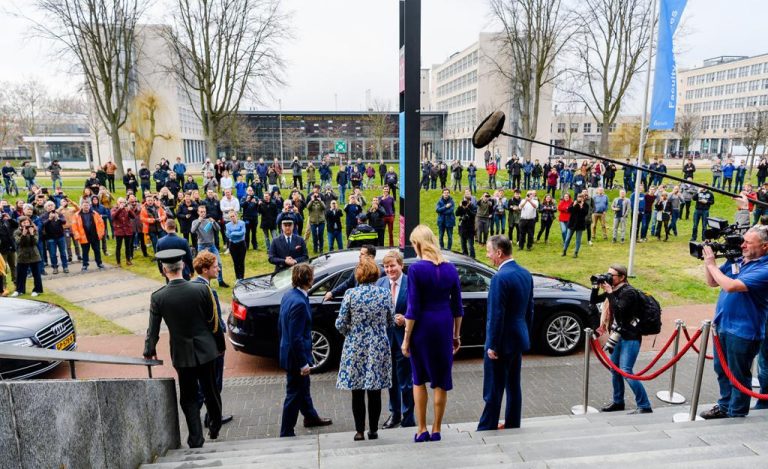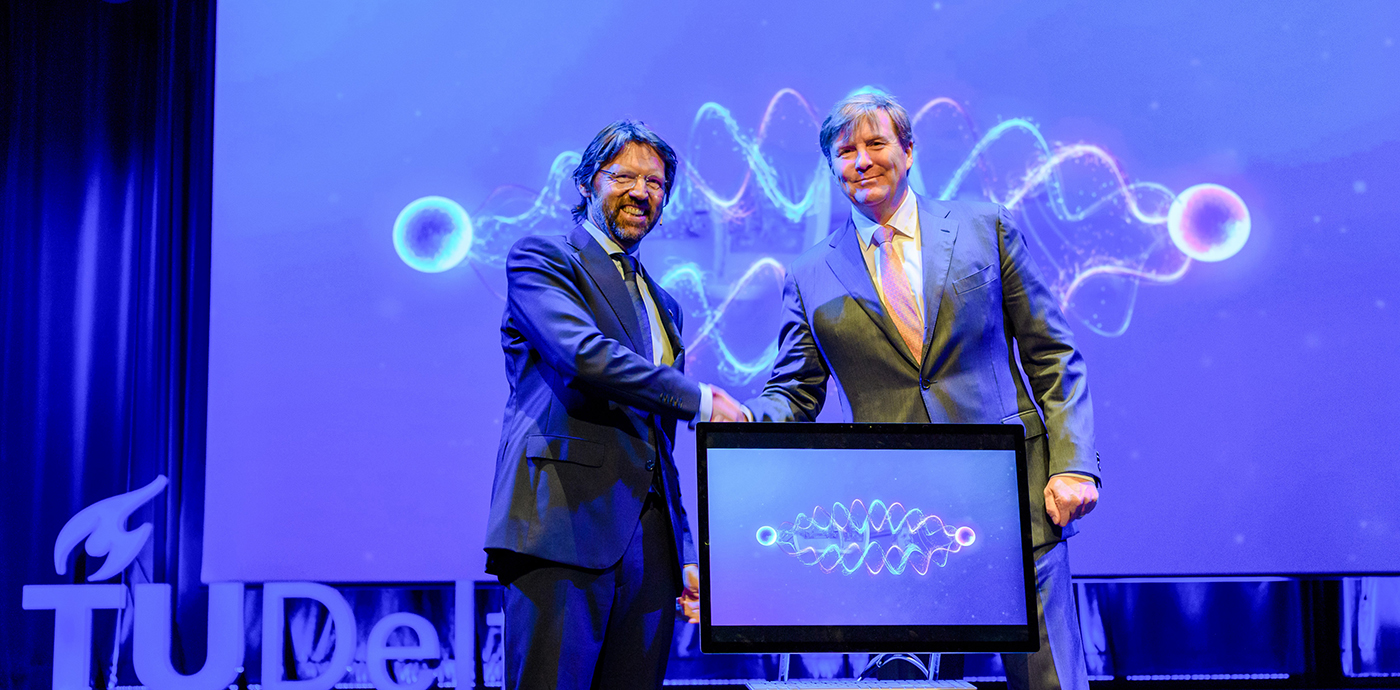Leo Kouwenhoven and King Willem Alexander performed the opening act of the Microsoft Quantum Lab Delft, where industry and academia join forces to exploit quantum physics.
Kouwenhoven and the King open the new lab (Photo: Marco de Swart)
A Royal visit, a full house, and wide media coverage. The celebration of the opening of the Microsoft Quantum Lab in Delft was a major event on Thursday, 21 February 2019. “I promise you, we will do some amazing science in this laboratory,” said Professor Leo Kouwenhoven. Next, he performed the opening act together with King Willem Alexander. The King, who ‘regrettably did not give a speech, then left for a guided tour though the labs.
Majoranas
Professor Charles Marcus (University of Copenhagen) opened the ceremony with a short lecture on the weird world of quantum mechanics. He explained how quantum information may be stored by knotting Majoranas, the stable quantum particles discovered in 2011 by Leo Kouwenhoven. These are now to be the basis of what is called ‘the topological quantum computer’. He called the large industrial investments in the Microsoft Quantum Lab “a perfect hybrid of academia and industry”.
The developments in quantum technology are fast-paced, said Professor Ronald Hanson, Scientific Director of QuTech. Over the last decade, the time to create an entanglement between two qubits shrank from two minutes to 0.1 second. Meanwhile, the lifetime of a quantum state increased from microseconds to a second. These technological developments should convince the early cynics, he said.
‘The developments in quantum technology are fast-paced’
More impact
Rector Tim van der Hagen presented the Microsoft Quantum Lab as an example of how dissemination of knowledge had evolved. In the past, many innovations stranded in the ‘valley of death’ between academia and industry. By bundling industry and academia into an innovation ecosystem called the Q-campus, TU Delft can create more impact for society he said.
Microsoft Netherlands’ director Ernst-Jan Stigter compared controlling the Majorana particle to the crank-shaft that was developed by a 16th century windmill builder. By converting rotation into translation, the crank-shaft opened up the possibilities for steam engines and internal combustion engines. Regarding the Majorana particle as the 21st century digital crank-shaft, Stigter said that Delft would become the quantum capital of the world.
‘Netherlands leading’
State Secretary of Economic Affairs Mona Keijzer widened the view a bit by mentioning the collaborations with the universities of Eindhoven, Leiden, Twente and Amsterdam. “The Netherlands is leading in developing the quantum computer,” she declared.
“We have moved from exploring quantum mechanics to exploiting it,” said Professor Leo Kouwenhoven, principal researcher at Microsoft Quantum Lab. After the discovery of the Majorana particle, he and his team have been working on the development of a stable Majorana qubit. Besides this, he has been the driving force behind unifying industry, university and the government into this quest for the quantum computer.
Before inviting the King onto the stage, Kouwenhoven asked the audience for a round of applause for all those who had actually built the lab.
- Want a preview of the quantum computer? Try the simulator developed by QuTech’s Nader Khamassi.

Busy business at the Physics building. (Foto: Marco de Swart)
Do you have a question or comment about this article?
j.w.wassink@tudelft.nl


Comments are closed.